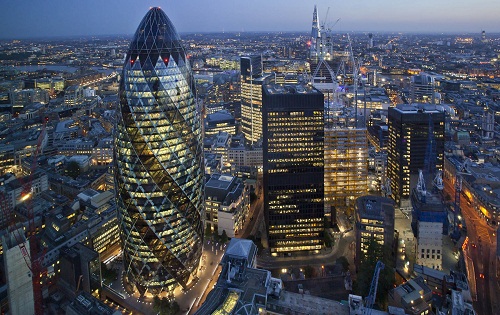The Gryphon discusses whether or not the future of broadcast media could be outside London…
London: not only our capital city but also the focal point of our media industry and broadcasting.
Since the birth of broadcast media, London has been fully at its core, perceived as having its own spotlight, whilst the rest of country resides in its shadow. Former editor of the Guardian, Peter Preston, even admitted that in regards to UK media, “London is just where it’s at”. However, for 87% of the population, London is not “where it’s at”. Despite this, currently all our national broadcasters and newspapers are based within the M25, subsequently creating the London- centric bias that the industry is so often criticised for.
But is this London-centrism coming to an end? Our nation’s lack of media diversity was first significantly acknowledged by the 2003 Communications Act, which required our national broadcasters (excluding Sky) to have a certain proportion of material made outside of London. However, it is the development of MediaCityUK in Salford, Manchester, which has been arguably the most poignant step in balancing out the ‘Southern Tilt’. Notably, the BBC relocated many of its departments, such as BBC Breakfast and CBBC/CBeebies, which now employ almost 4,000 workers. The move certainly seems to have sent the progressive, and frankly, necessary message that large-scale decentralisation away from the capital is what is needed in order to create a more balanced society, both economically and socially.
Despite the BBC’s headquarters remaining in Westminster, it’s hard to ignore the benefits that the vast enterprise of MediaCity has brought to Greater Manchester since 2011. The result of having national broadcaster giants of both the BBC and ITV Studios relocate to Salford has seemingly contributed to making Salford a wealthier area. In 2014, the 14% rise in Salford house prices that surpassed any other town in Britain (including London), was explained by economists to be an indirect benefit of MediaCity. In a more socio-political context, the enterprise has also acted to erase the nation’s ingrained perception that London is the only place “where it’s at”, and lives as a thriving example that perhaps it is time to look away from London.
If we turn a little closer to home, we can see the newest development in the eradicating London-centrism in UK broadcast media. As of October 31st, Channel 4 announced its decision to create a brand new National Headquarters in Leeds, West Yorkshire, as well as smaller “Creative Hubs” in Bristol and Glasgow. The broadcaster explained that the relocation was driven by a priority to “boost the way it reflects life outside of London” and puts forward the aim to have 50% of the company’s budget spent outside of the capital by 2023. Channel 4’s ambition seems to have fairly solid support too, with screenwriter Kay Meller anticipating Leeds to be “put firmly on the media map”.
Both the growth of MediaCity and Channel 4’s latest development give hope that broadcast giants are listening to government pressure to invest in areas beyond the M25, subsequently narrowing the North-South divide. It appears that, despite having a long way to go, we’re seeing a chain reaction of broadcast media finally creeping away from London, injecting capital and creativity more evenly across Britain.
Izzy Tiffin

